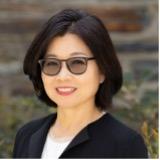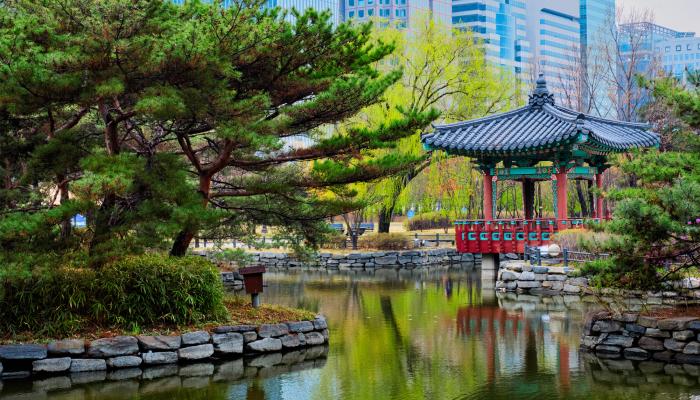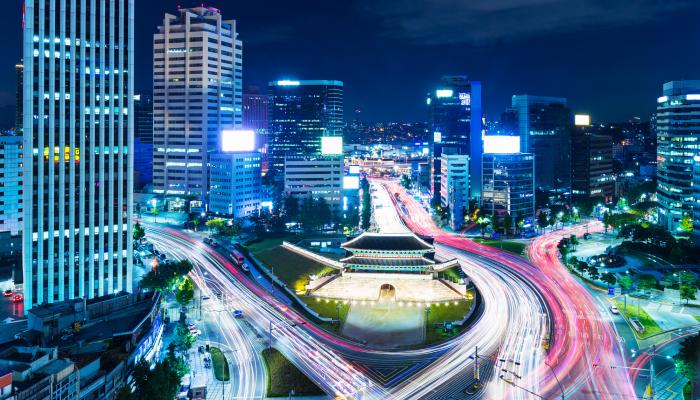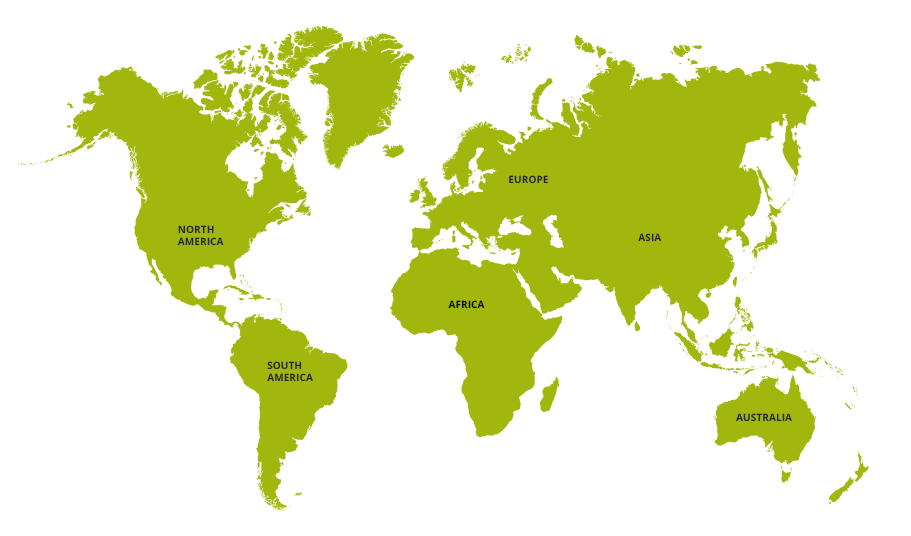Duke in Seoul
A 4-week summer cultural and Asian studies program
Study in Seoul
Apply NowTaught in English
The program surveys the various ways in which South Korea has emerged as a leading nation in the creation of global culture since the late twentieth century. Participants will seek to:
- To understand key issues in contemporary Korean culture
- To understand major concepts related to global culture and soft power
- To understand how performance is central to the formation and expression of nationhood
- To collaborate with other students and effectively communicate findings to the class
- To conduct research in Korea and apply the findings to the creation of a final project
- To become more aware of intercultural encounters as a global citizen
Program Fast Facts
Location: Seoul, South Korea
Term: Summer II
Dates: June 26 - July 24, 2025
Application Deadline: February 1st
Academic Theme(s): Globalization, cultural studies, Asian studies, media studies, policy studies, theater and performance studies
Language of Instruction: English
Credit Type: Duke Credit
Eligibility: No prerequisites. Suitable for all majors. Non-Duke students are welcome to apply.
Duke Affiliation: Duke Department of Theater Studies and International Comparative Studies Program
Housing: Participants will stay in residence halls, location TBD. During the overnight excursion to Busan, students will stay in double occupancy rooms at a hotel.
GEO Advising: Request an appointment
ACADEMICS
All students enroll in the program's signature course offering one Duke credit. No pass/fail option or auditing is permitted.
- COURSE
COURSE
THEATRST 220SA/AMES 227SA/ICS 220SA
Korea in Performance: Global Culture and Soft Power
1.0 Credit (ALP, CZ, CCI)
This course surveys the various ways in which South Korea has emerged as a leading nation in the creation of global culture since the late twentieth century. Exemplified by K-pop, K-drama, and films such as Parasite, various cultural contents created in and promoted by Korea have circulated globally and have had a lasting impact on popular culture, new media, and the arts around the world. The course begins with a study of how the Korean government actively promoted the “soft power” of Korea as a major economic opportunity in the 1990s. Korea was one of the poorest countries after the Korean War (1950-1953), but in 2021, the International Monetary Fund ranked it as the tenth biggest economy in the world. And “soft power” has been a key part of that rapid growth. The course uses theories from Performance Studies to examine how Korea has performed aesthetically, politically, and economically. By using specific case studies in Seoul and its vicinities and by inviting guest speakers, the course introduces students to topics of globalization, interculturalism, neocolonialism, neoliberalism, transnationalism, and tourism. It also explores the complex relationship between the global and the local. A central question in the course is how Korea performs its soft power, and students will be given the opportunity to work on a research project that addresses the question with onsite participation and exploration. Students will also participate in weekly excursions, including theatre shows, museums, films, broadcasting companies, drama sets, and cultural sites.
Excursions
Students will participate in weekly excursions, including theater shows, museums, films, broadcasting companies, drama sets, neighborhood visits, and cultural sites. Excursion destinations are subject to change each summer.
The program includes an overnight trip to Busan, a bulgogi workshop, Nanta performance, K-pop dance class, and a Samulnori performance. Depending on availability, students may also attend movies, concerts, or other performances while in Korea.
HOUSING & MEALS
Accommodations
TBD
During the overnight excursion to Busan, students will stay in double occupancy rooms at another hotel.
Meals
One group lunch and two group dinners are included in the program cost. All other meals are paid for by the participant out of pocket. Students may choose to utilize the shared kitchen on the lower level of the hotel to prepare meals, or explore the many affordable restaurants and supermarkets nearby.
COSTS
Estimates are based on previous years’ programs and the current exchange rate. All costs are subject to change.
Summer 2025
| Duke Students | Non-Duke Students | |
|---|---|---|
| Tuition | $2,970 | $2,970 |
| Program Fee | $5,500 | $5,500 |
| Transcript Fee | N/A | $120 |
| Other Costs | $5,860 | $5,860 |
| TOTAL (Estimated): | $14,330 | $14,450 |
Explanation of Costs
- Single occupancy accommodations in Seoul and double occupancy accommodations on the excursion to Busan
- Program-sponsored activities, entrance fees, and excursions
- Orientation program
- Local transportation pass
- 1 group lunch (Bulgogi cooking class), and 2 group dinners (arrival and farewell)
Personal expenses can fluctuate greatly depending upon the habits and preferences of the individual. It’s also wise to budget for unexpected expenses such as medical emergencies. On average, it is suggested that participants budget about $500-$1,000 for personal spending.
Step 1: Upon acceptance to the program, you must submit the Summer Participation Agreement found in your MyGlobalEd application to confirm your enrollment. A parent/guardian’s co-signature is required. This form takes the place of a deposit.
NOTE: If you withdraw after March 15, you will be charged a cancellation fee for voluntary withdrawal. Fees range from $2,000-$3,000.
Step 2: Summer invoices will be sent via email to your Duke email address and home email address. Remit payment to the Bursar per due date and address indicated on your online statement. Consult the Duke Bursar's office billing schedule for payment due dates.
Financial Aid
Duke students receiving financial aid are eligible for aid for this program (work-study funds must be converted to loans). Students are individually responsible for making the necessary arrangements with the Karsh Office of Undergraduate Financial Support and the Duke Bursar’s Office.
Scholarships
This program offers the following scholarship opportunities:
DATES
Attendance is required at all classes, excursions, and group events. Given the intense nature of this program, late arrival and/or early departure is not permitted.
Arrival: June 26, 2025
Departure: July 24, 2025
Flights
You will make your own travel arrangements to and from the program site. You are expected to arrive on the arrival date cited above, which usually means departing the U.S. one day prior. Once you have a flight itinerary, log in to MyGlobalEd to update your travel registry.
You will be given an arrival window so group transportation can be arranged to the dormitory from the airport. If you do not arrive during the prescribed timeframe, you will have to navigate from the airport to housing independently.
Housing Before/After
You will need to make your own housing arrangements if you will be arriving before the program start date or leaving later than the program end date
VISA & PASSPORT
VISA
No visa is required of U.S. citizens to participate in this program. Non-U.S. citizens should pay special attention to the visa requirements for their specific citizenship by contacting the country embassy to find out if any visa restrictions are in effect.
PASSPORT
All participants must have a valid passport. Make sure your passport has at least six months of validity beyond the program end date to avoid unintended disruptions. For instructions on obtaining or renewing your U.S. passport, visit passports.state.gov.
International Student Identity Card
An International Student Identity Card (ISIC) is optional. ISIC is the only internationally recognized form of student ID, endorsed by UNESCO. If purchased in the U.S., the card also carries with it a supplemental insurance policy, which can prove to be very helpful in the event of serious injury. You may purchase this card through www.myisic.com. Processing of the card takes between 4-15 days.
PROGRAM FACULTY & STAFF
The faculty director can assist with questions related to program academics, admissions, on-site needs, etc. For all other inquiries, please contact the Global Education Office.


ADMISSIONS
Deadline: February 1st
This program has rolling admission. Applications will be considered on a first-come, first-served basis until the program fills; after that, qualified students are added to a waitlist and notified of openings. Applications must be received by the deadline to be considered. Application opens November 1.
Priority: Priority is given to applicants who apply early.
Minimum GPA: There is no minimum GPA.
GEO policy for graduating seniors who wish to apply for a Duke summer study abroad/away program:
Students must be active, matriculated students in order to participate in any Duke-in summer programs, including Duke’s domestic summer programs. All program courses must be taken for graded credit. If seniors plan to graduate in May of the year they plan to study abroad in the summer, they will not be eligible to participate on any of our summer programs unless they receive approval from their academic dean at Duke to delay their graduation until after the summer program has ended.
Non-Duke students planning to graduate in May in the year they plan to study abroad in the summer must provide approval to delay their graduation until after the summer program has ended from the appropriate official at their home institution. Such approval must be furnished in writing to GEO before the student will be allowed to participate in the summer program. This approval may be sent via email to the appropriate program assistant at GEO.
Duke students who defer their graduation to participate in study abroad should consult with their financial aid advisor in the Duke Office of Undergraduate Financial Aid to determine whether they are eligible for a summer aid package and/or a GEO summer scholarship.
APPLY
Start your application early to ensure that it is complete by the deadline! Incomplete applications will not be forwarded to the program directors for consideration.
Submit the following items using MyGlobalEd:
- Online application
- Official transcript(s) from all colleges and universities attended.
- First-year students should wait for fall semester grades to be posted before submitting their transcript.
- Personal statement, no longer than one page, explaining why you would like to participate




